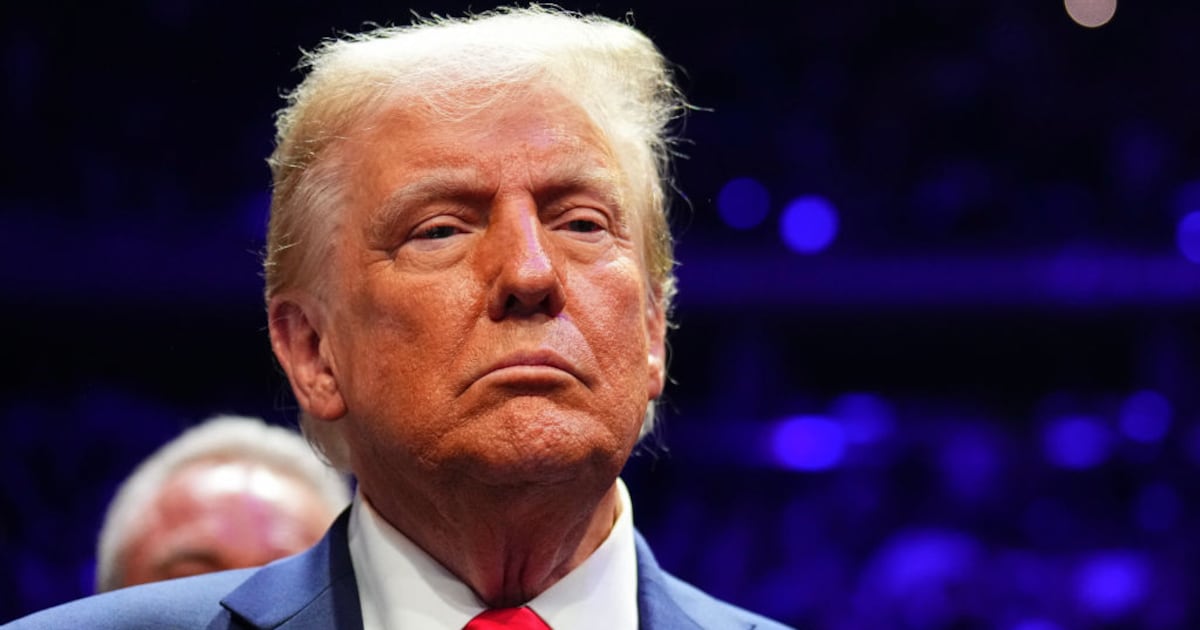The head of a dark money group supporting a top Republican Senate recruit in Michigan is threatening to sue state and federal arms of the Democratic Party over allegations that she violated campaign finance laws.
But Democrats say the objections only bolster their claims of illegal campaign coordination and now they are filing a Federal Election Commission complaint against the dark money group, formalizing its allegations of illegal politicking in one of the nation’s most crucial 2020 U.S. Senate contests.
The dark money outfit is called Better Future Michigan, and it’s run a host of ads going after Democratic Sen. Gary Peters, whom Republican businessman John James hopes to unseat in November. As The Daily Beast reported last week, Better Future Michigan has some notable ties to the James campaign: it’s run by his former campaign manager, Tori Sachs; it’s using the same ad buyer that James used during his unsuccessful 2018 Senate bid; and BFM engaged the James campaign’s top vendor this cycle to help build its website.
ADVERTISEMENT
Sachs’ involvement led Michigan Democrats and the Democratic Senatorial Campaign Committee to allege illicit coordination between BFM and the James campaign. The Center for Responsive Politics, which first noted Sachs’ position as BFM’s executive director, “reports that John James’ campaign appears to have violated FEC coordination law,” the state party wrote on its website in January.
That set off a flurry of legal bickering, with Sachs’ attorneys threatening to sue the Michigan Democratic Party and the DSCC, which made similar allegations, for libel. But instead of backing off, the Democrats’ attorneys have doubled down on those allegations. On Tuesday, they officially accused BFM and the James campaign of illegally coordinating their activities.
At issue is a specific federal law that bars outgoing campaign staffers from joining a supportive independent political group for 120 days. Sachs drew her last paycheck from the James campaign on May 3, 2019, according to FEC records. Ninety-six days later, on August 7, the group began running its first Facebook ads, with videos hammering Peters over his ostensible support for controversial left-wing policies including Medicare for All and the Green New Deal. (Peters denies he supports either, and independent fact-checkers have found one of BFM’s ads to be false.)
By the time BFM’s ads began running, the group’s website had identified Sachs as its executive director. Democrats said that amounted to a plain violation of the “cooling off” period required of former campaign staffers.
Sachs’ attorneys allege that such a charge is false and defamatory. BFM has not explicitly called for James’ election or Peters’ defeat in any of its ads, the group wrote in its letter to the DSCC and Michigan Democrats. It’s engaged purely in issue advocacy—not outright political activity–and therefore is not bound by the more stringent coordination restrictions that impose that 120-day revolving door ban.
"While Mrs. Sachs appreciates diversity of opinion and First Amendment protections for opinion,” her attorneys wrote in January 23 demand letters to the state party and the DSCC, “the publication of a false statement of fact alleging that Mrs. Sachs violated FEC coordination laws crosses the line from opinion to defamation because it both falsely and maliciously accuses another of a crime, which constitutes libel per se."
Five days after receiving that letter, attorneys for the firm Perkins Coie, which represents both the DSCC and the Michigan Democratic Party (and, as it happens, the Peters campaign), defended its clients’ statements. The coordination rules at issue, the attorneys wrote in their reply, apply not just to groups engaged in explicit politicking, known in legal terms as express advocacy, but also ones whose ads are the “functional equivalent of express advocacy.”
BFM’s ads, the attorneys claim, are merely thinly-veiled efforts to gin up votes against Peters under the guise of issue advocacy, and are therefore subject to coordination laws that would’ve barred Sachs’ move to the group within that 120-day window.
The Democratic attorneys also pointed to admissions in Sachs’ lawyers’ letter that they say bolster its case. That letter actually provided some previously unknown info on her involvement: it notes that Sachs signed on as BFM’s executive director on June 1, 2019, earlier than was previously known.
In fact, that’s before James even declared his 2020 candidacy. He formally entered the race on June 6 though his campaign committee had remained active after his failed 2018 run. And it’s before BFM was officially incorporated the following week.
“This timeline of events provides a strong basis to conclude that John James, through Ms. Sachs as his agent, illegally established Better Future Michigan,” the Perkins attorneys wrote.
One of Sachs’ lawyers, Robert Avers of the firm Dickinson Wright, told The Daily Beast in an email that the letter from the Perkins attorneys, one of whom he referred to as “Gary Peters’ attorney,” is “a meaningless word salad with no comprehensible argument.
“Better Future Michigan will continue with its mission of educating Michiganders on important policy issues,” Avers added.
Michigan Democrats’ allegations are now at the center of an FEC complaint filed by Michigan Democrats against Sachs, BFM, and the James campaign on Tuesday. “Based on the available evidence, it appears likely that John James, through his agent, Tori Sachs, illegally established a dark money entity that is raising and spending funds outside of the federal contribution limits, source restrictions and reporting requirements to support James' election campaign in plain violation” of federal law, the complaint alleges.
The FEC is not likely to take any action on the complaint, as it’s currently operating without a quorum. Absent the confirmation of a new commissioner this year, efforts to enforce election laws such as prohibitions on illicit campaign coordination, or even get clarity on what does or does not constitute a violation, will go largely unheeded, even during a presidential election year.







